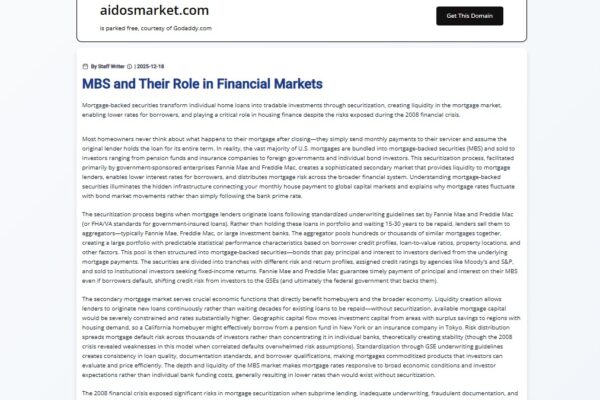M.dodoai.pro Scam Review –An “AI Trading” Illusion
Introduction
There’s something seductive about the promise: “Artificial Intelligence, profitable trades 24/7, minimal effort required.” Platforms like Dodo Pro leverage that promise with slick interfaces and bold claims. But behind the glossy surface lies a troubling pattern of warning signs, evasive licensing, and regulatory flags. In this review I’ll walk you through how Dodo Pro presents itself, what evidence suggests it’s a scam, how its scheme likely works, and what readers should learn from its playbook.
The Pitch: “Join the AI Trading Revolution”
Dodo Pro markets itself as a cutting-edge trading platform, one that harnesses advanced algorithms (the “AI”) to trade cryptocurrencies, forex or other financial instruments for you. The website uses buzzwords such as “instant returns”, “automated trading”, “global markets”, “exclusive access”. For somebody looking in, the narrative is compelling: you don’t have to be a pro, the bot does the heavy lifting, you deposit and watch returns roll in.
That promise is powerful—especially in a period when cryptocurrencies and trading platforms attract mass interest. The user is seduced into thinking this is the future of investing, and the platform looks modern enough to support the illusion.
Unpacking the Red Flags
When you dig beneath the surface, Dodo Pro raises multiple major warning signs. Let’s unpack them one by one.
1. No credible regulation or licensing
One of the most foundational checks for any trading platform is: is it regulated? For Dodo Pro, the answer is no. Several independent tracking sites highlight that Dodo Pro is unregulated by recognised authorities (such as the UK’s Financial Conduct Authority (FCA), Australia’s ASIC, or similar).
Specifically, the British Columbia Securities Commission (BCSC) has put Dodo Pro on its Investment Caution List, stating that the platform is not registered as a dealer or exchange in that jurisdiction.
Operating without oversight means there is no regulatory protection for users, and major red flags for legitimacy.
2. New or opaque domain/ownership
The domain dodoai.pro and sub-domain m.dodoai.pro are recent (domain creation 31 July 2023) and the ownership details are masked (via privacy services).
When a trading site hides its ownership, doesn’t publish a verifiable physical address, or uses anonymity services, that points to lack of accountability—another strong warning.
3. Low trust scores and suspect technical indicators
Independent website scanners give Dodo Pro very low trust or safety ratings: e.g. ScamDetector marked dodoai.pro with a trust index of just 24.9/100, tagging it “Suspicious. Unsafe. Doubtful.”
Another site rated the safety score at 45/100 and called it “below average”.
These technical indicators (domain age, hosting location, masked ownership, low traffic) combine into a strong risk profile.
4. Marketing promises and mismatched reality
Dodo Pro promises “automated AI trading”, “high returns”, etc., yet fails to provide credible proof of performance, doesn’t offer a credible demo account, and is vague about fees. According to one review, the platform fails to provide a demo option (which reputable brokers typically offer). Your review
When you see promises of high returns + minimal requirements + no regulation, the risk is elevated.
5. Regulatory warnings / investor alerts
The BCSC warning is a serious indicator:
“Dodo Pro has not been recognized as an exchange or registered as a dealer in BC. We urge BC residents to exercise caution…”
Such warnings do not prove a scam—but they strongly indicate the platform is operating outside legal investor-protection frameworks.
How the Scam Likely Works
While I cannot prove exactly every transaction for Dodo Pro, based on all available patterns and user-reports I can outline a likely scheme:
-
Attraction & Onboarding
A user sees an ad or social media post: “Join Dodo Pro. AI trades for you. Deposit $500, see steady gains.” They sign up, maybe through a “mobile version” (hence the m. sub-domain) to look like an app-based platform. -
Initial Credibility / Small Wins
The user is allowed to deposit a relatively small amount. The dashboard shows “profits” or growing numbers (real or simulated) to build confidence. They may even withdraw a small amount (to prove it works) or see small returns. -
Pressure to Invest More
After the user trusts the system, they are encouraged to deposit more, upgrade to “premium account”, or invest in special tokens. They might be told “our AI performs best with minimum $5,000+” or “invest now before our slot fills”. -
Withdrawal Issues & Excuses
When the user asks to withdraw bigger amounts (original deposit + “profits”), suddenly the platform introduces delays, “verification required”, “tax/fee must be paid”, “your account is locked due to rapid gains”. Support becomes unresponsive, or the user is asked to deposit further fees or commissions before releasing funds. -
Lock-out or Vanish
Eventually, the site may disable access, shut down the dashboard, or ignore support. Since there is no regulatory oversight, user funds are trapped. The domain might change, app disappear, and the user has no recourse.
Many of the details above align with what reviewers are reporting for Dodo Pro. For example, one user wrote:
“I was lead to this platform (DODO PRO) by someone who contacted me through IG… I have lost somewhere around $1M.”
Such anecdotal evidence reinforces the risk.
The Victim Experience
Here are some of the common reports and experiences of people dealing with Dodo Pro:
-
The user is approached on social media or messaging platforms by someone promoting “high-yield AI trading via Dodo Pro”.
-
They deposit funds (often via wire transfer, bank, or crypto).
-
Initially small withdrawals may be allowed to build trust; then larger withdrawals are blocked or require “extra verification/fee”.
-
Support becomes unresponsive. Access to the platform might become restricted.
-
The user may be asked to deposit more funds to “unlock” withdrawal.
-
They realise the promised AI-trading gains were largely illusory, and their money is gone.
One user said:
“My research could not turn up info about a 47-character crypto address either… This certainly provides further evidence that she is part of the scam.”
Another:
“When assessing the legitimacy of a broker like Dodo Pro … the absence of an official address is a notable omission.”
Broader Themes & Why This Happens
Why do platforms like Dodo Pro get traction? Because they tap into deep psychological triggers:
-
The promise of “easy” money is very alluring, especially in crypto/trading spaces.
-
Trust via appearance: sleek website + buzzwords + testimonials = seeming legitimacy.
-
FOMO (fear of missing out): if everyone is talking about AI trading, you may feel you must act now.
-
Low regulatory awareness: many users don’t check whether a broker is licensed or regulated.
-
Emotional commitment: once you’ve deposited, you may feel pressure to “make it back” or invest more, making you less skeptical.
The operators exploit these dynamics. They build a façade of legitimacy, encourage deposits, and then gradually implement withdrawal controls or vanish.
My Verdict
Based on the evidence, my assessment is:
Dodo Pro (m.dodoai.pro) is highly likely a scam.
The lack of regulatory oversight, recent domain and masked ownership, very low trust/safety scores, regulatory warnings (BCSC), and the typical scam workflow all point strongly in that direction. While there is always some uncertainty (until legal action or criminal prosecution confirms), the risk is extremely high and I wouldn’t consider this a legitimate investment platform.
What To Keep In Mind (Lessons)
While you asked for no recovery advice, it’s still useful to glean general lessons from this case—so you can spot similar schemes going forward:
-
Always verify that a platform is regulated/licensed in your jurisdiction.
-
Be wary of promises of “AI trading”, “automated profits”, or high returns with low risk.
-
Check domain age, ownership transparency, and whether the company publishes verifiable physical address and management team.
-
Look for real user-reviews (with caution) but also independent regulatory warnings.
-
Be extra cautious when withdrawals get delayed or you’re asked for extra “fees” before you can withdraw.
-
If someone approaches you unsolicited about an investment platform, treat that as a red flag.
Final Thoughts
Dodo Pro presents a modern, attractive veneer: “AI trading”, “instant profits”, “join now”. But beneath that lies a familiar pattern of deceit seen in many fraudulent investment platforms. When you peel back the interface, you find an unregulated entity, with hidden ownership, domain history that’s fresh, trust ratings that are alarmingly low, and regulatory bodies flagging it as unregistered.
If you were to summarise Dodo Pro in one line: it’s a textbook example of how sophisticated the facade of a “legit” trading platform can look—and how shallow the foundations often are.
In the wild world of online trading and cryptocurrency, the old maxim still holds: If something looks too good to be true, it probably is.
Report M.dodoai.pro Scam and Recover Your Funds
If you have lost money to M.dodoai.pro Scam, it’s important to take action immediately. Report the scam to Jayen-consulting.com, a trusted platform that assists victims in recovering their stolen funds. The sooner you act, the better your chances of reclaiming your money and holding these fraudsters accountable.
Scam brokers like M.dodoai.pro continue to target unsuspecting investors. Stay informed, avoid unregulated platforms, and report scams to protect yourself and others from financial fraud.
Stay smart. Stay safe.






